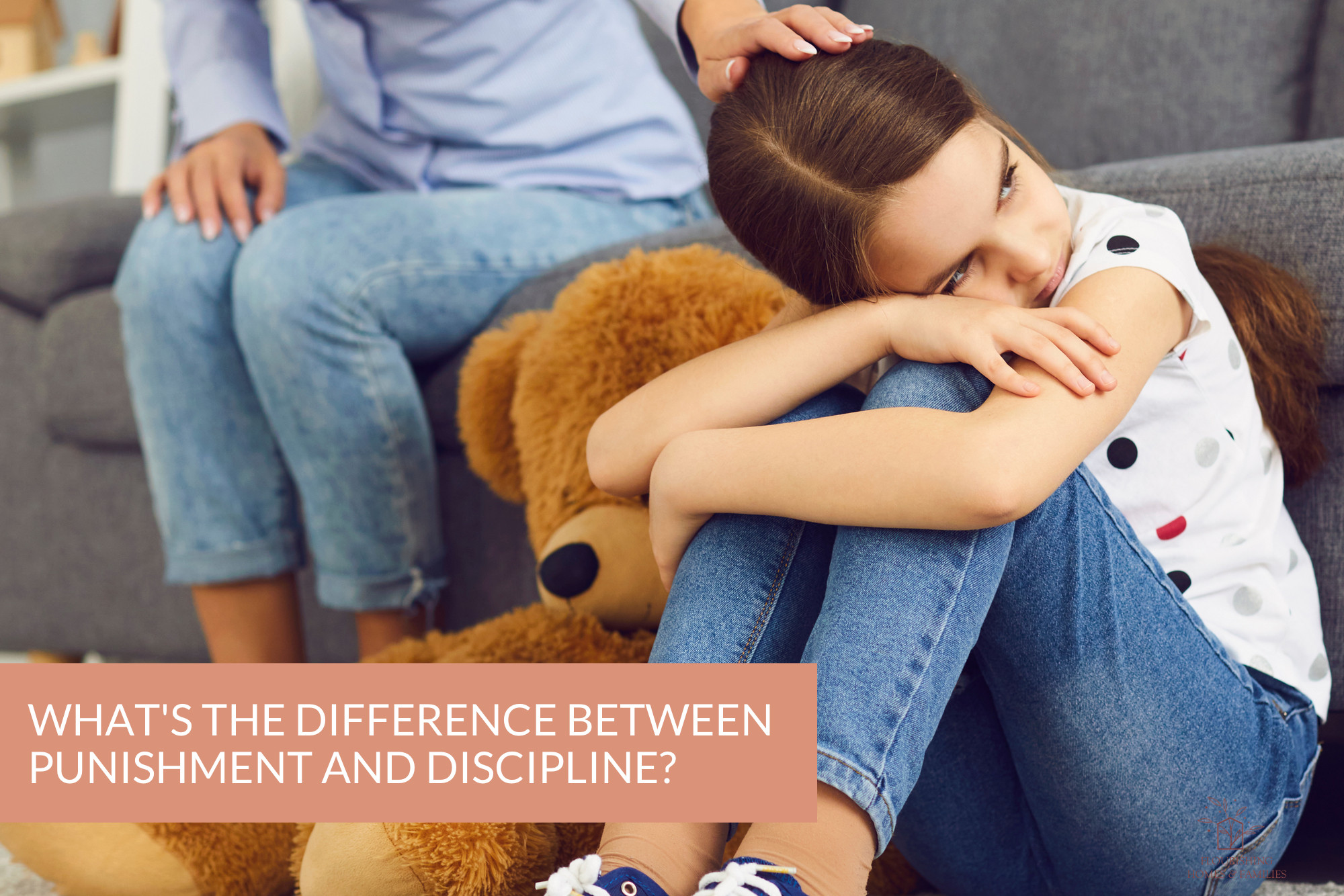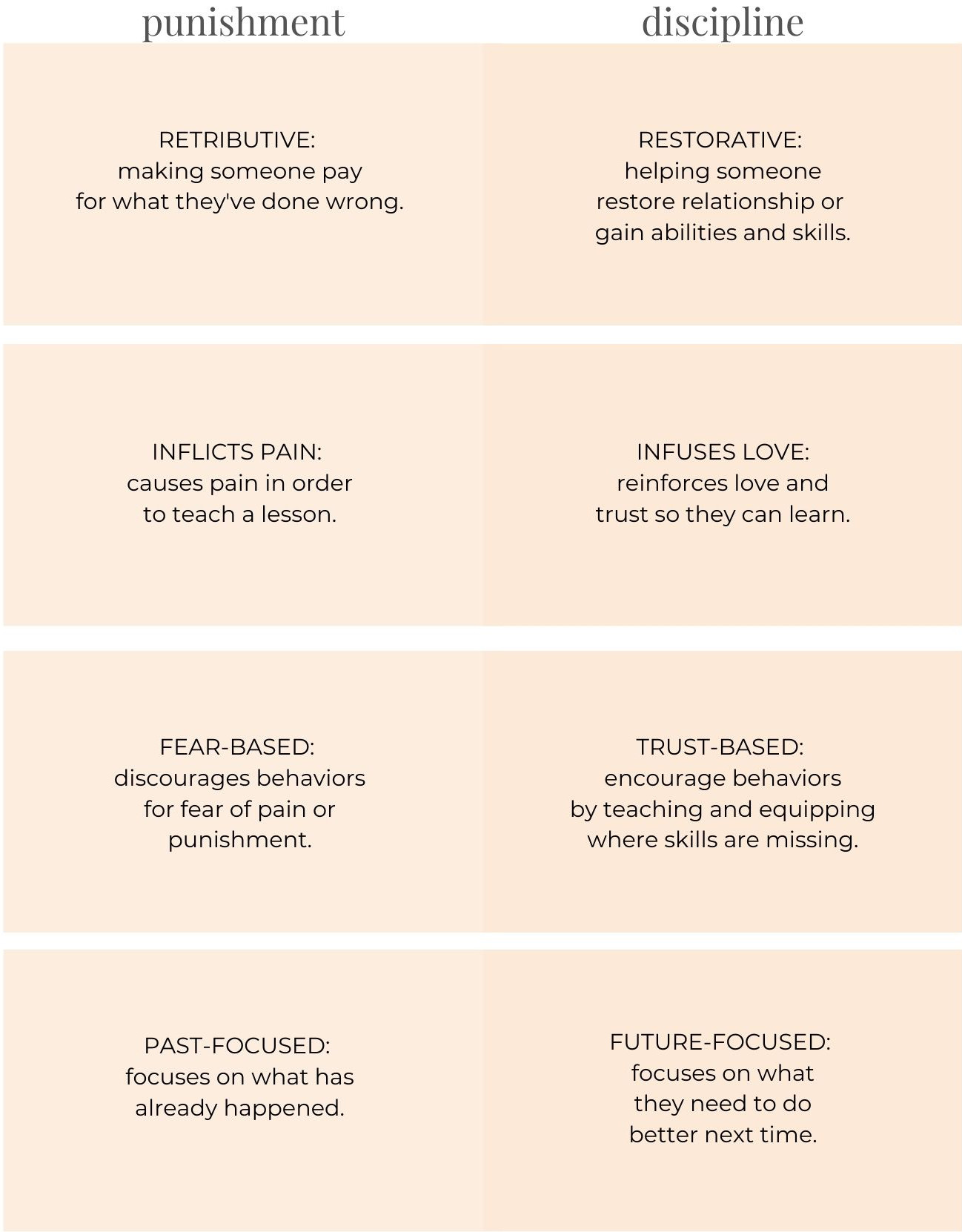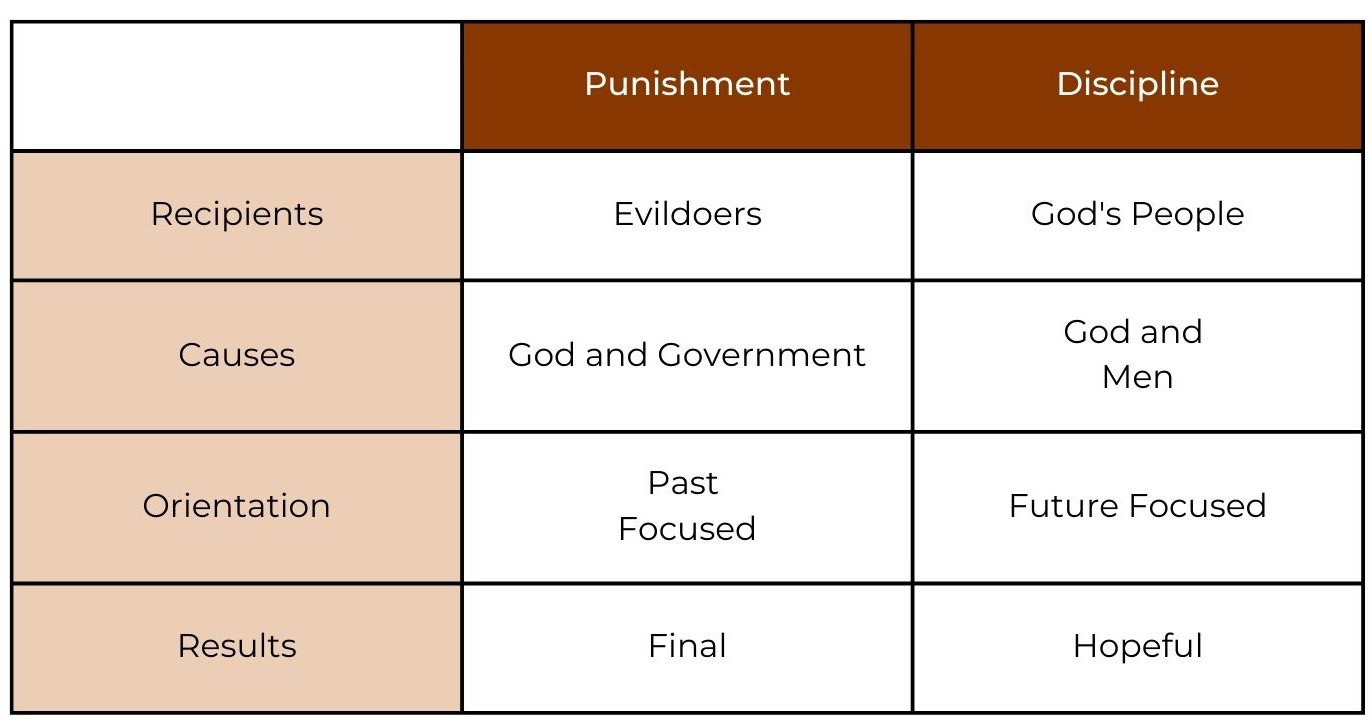
One of the biggest mindset shifts we had to make when we first started on a new parenting journey was that discipline and punishment are fundamentally different and they serve different purposes.
Punishment is retributive. It is intentionally inflicts pain. It is fear-based and it focuses on the past. Discipline is restorative. It infuses love. It is trust-based and focuses on empowering children for the future.
Parenting from a posture of peace means that our discipline is rooted in peace. Do our children always love it? No. Discipline isn’t necessarily enjoyable. But it also isn’t intentionally painful. But when it comes to discipline, parenting as a peacemaker takes a proactive and restorative approach. It aims to empower, equip, and encourage children to learn to do the right thing because it is the right thing, not because they are scared of the consequences.
A child doing the right thing because they are afraid of getting hurt (emotionally or physically) is not the same thing as a child doing the right thing because they understand another's perspective and genuinely want to do the right thing.
Proactive and restorative discipline requires parents to set their eye on the long term goal of cultivating within a child intrinsic motivation to act with charity, generosity, compassion, courage, kindness, and empathy because it is the right thing to do. And yes, that's hard sometimes! But keeping your eye on the goal, not what's in front of you right now, will help you stay focused and committed to proactive discipline.
WHAT IS DIFFERENCE BETWEEN PUNISHMENT AND DISCIPLINE?
Understanding how punishment and discipline are different can help you respond to your child's misbehavior or behavior challenges with grace and gentleness. Keeping discipline, rather than punishment, as the goal, will empower you to come up with a future-focused approach, rather than a past-focused approach.


IS THERE A DIFFERENCE BETWEEN PUNISHMENT AND DISCIPLINE IN THE BIBLE?
There's no way around it: punishment and discipline both exist in Scripture. Throughout the Biblical narrative we find divine judgment and punishment, as well as wisdom-based discipline, and everything in between.
Looking at the big picture Bible is telling, with particular individuals, the nation of Israel, and His church, a pattern begins to emerge. God does not bring negative consequences into every situation in the same way. Instead there are, broadly speaking, two ways that God enacts these consequences on humans in His creation:

This pattern emerges from how the Bible is speaking about and describing various events. It is not drawn from the Bible’s precise and consistent use of the words “punishment” and “discipline” as terms with highly specialized meanings. So the use of particular vocabulary is not the only determiner of how a passage fits into this pattern. Instead the context and the content of each passage will help us understand what it is describing and how it fits within the pattern.
In Peacemaker Parenting, we draw distinctions between discipline and punishment. This is a mental framing device that helps us orient our positive encouragement and negative correction towards the future benefit of our child. So while we would encourage natural consequences as a regular feature of our children’s lives and logical consequences as a useful disciplinary tool that should be deployed judiciously, we would dissent from illogical and punitive consequences as a helpful form of discipline.
To be clear, the Bible will not neatly follow modern ideas about parenting in its vocabulary choices. That’s perfectly fine. We’re not trying to impose a 21st century framework onto an ancient text. We’re trying to grasp how these concepts were understood in the Bible and then apply those insights wisdom, and Jesus' kingdom ethic to our parenting today.
Want to learn more? Our Punishment and Discipline in the Bible Workshop is a deep dive on this topic!
You might also like:












0 Comments